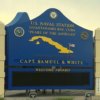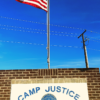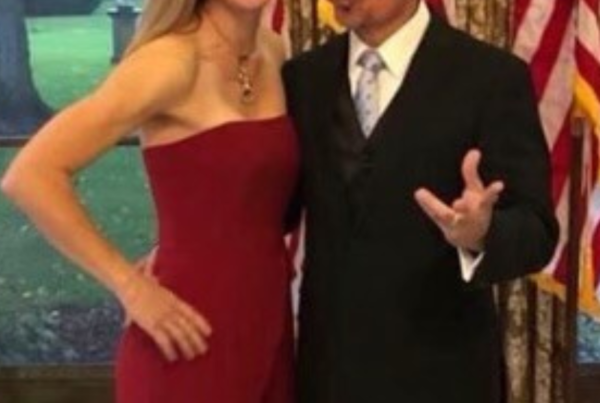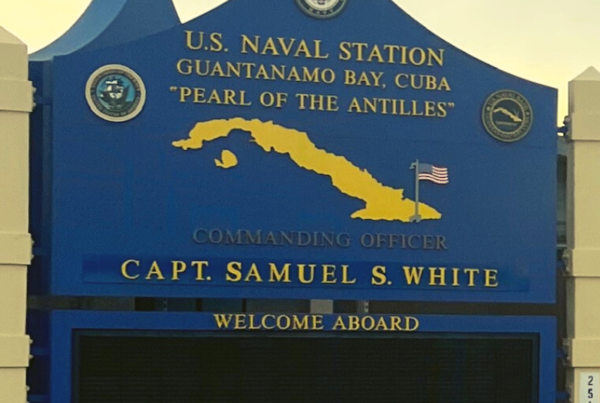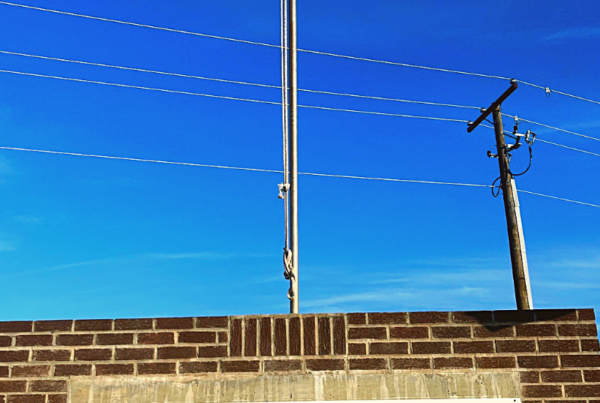BABYLON, Iraq – On a shimmering high-desert morning, I moved closer to the ancient ruins of Babylon, hulking, stoic slabs jutting from the earth cast against clear blue skies. These remnants of the old empires knit together histories of cities, industrial hubs, and battles of ancient civilizations.
Just 50 miles south of Baghdad, Babylon (also referred to as Babel) evokes the mythical memories of life some three thousand years ago. A myriad of Biblical tales, including the now submerged Garden of Eden, existed here. The world’s first-established civil code was written beneath the intricately carved stone arches. Even Alexander the Great took his final breath inside its dusty heart.
“This place is written about in both the Bible and the Quran,” says Mekky Mohamed Farhoud, who grew up in a village on the near edges of the historic ruins. “Before Babylon, the world was speaking only in one language. Then Babylon was built and became the power center. It is here that the world came together and started to speak different languages.”
Babylon ruled the world as the first prominent independent city-state and trade and technical innovation nucleus known to man. The legend of the Hanging Gardens, one of the Seven Wonders of the Ancient World, hangs in Babylon’s mythos, although Mekky admits they are yet to pinpoint exactly where it once sat.
For Mekky, there is no life beyond Babylon. Archeology runs through his blood. His grandfather guarded the site at the turn of the 20th century. Then his father took over through the Second World War. Mekky has since served as senior archeologist for more than three decades. This 2500-acre swath of land has survived it all: countless wars, flooding, ill-conceived reconstruction efforts by Saddam Hussein, a military base for American and Polish soldiers following the 2003 invasion, and ongoing terrorist threats.
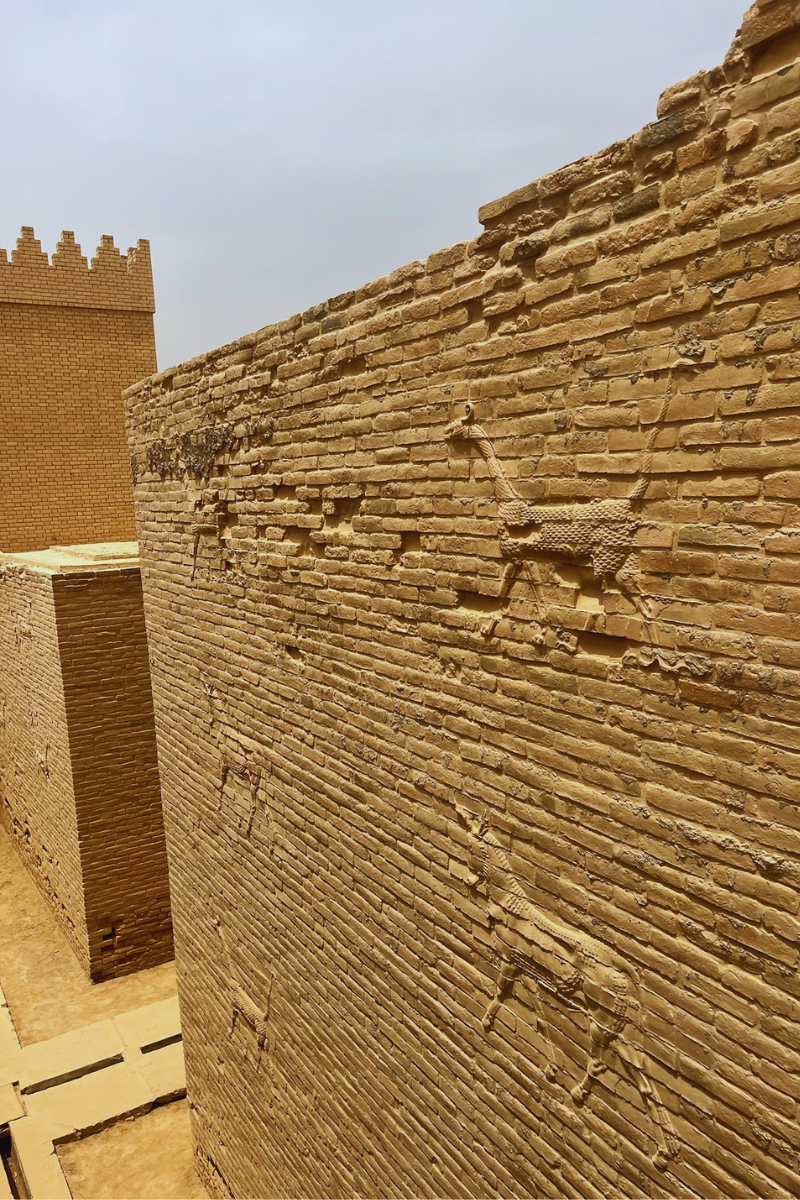
It seems everyone has left their mark on the stripped palace walls from Hussein’s attempt at godlike anointment, most coated with graffiti, including remnants from the U.S. troop presence. But from the highest floor the view is spectacular: olive groves contrasting with the turquoise Euphrates River, and civilizations of old dug out like marble statues from the crusted earth.
Sadly, the land of Babylon, which he characterizes as his child, has been subject to debilitating damage and looting over the years. After the fall of Saddam, much of the archeological richness of Iraq was stolen, pummeled, and sold for a quick buck.
The consequences for anyone caught doing so could face the death penalty if convicted. The family of a retired British geologist is fighting desperately for his freedom after the 66-year-old picked up ancient pieces – which he claims he was authorized to take – during a recent expedition to Iraq’s south.
Last summer, some 17,000 archeological artifacts were returned to Baghdad by the United States following an investigation into items acquired by an Ivy League university and prominent Washington museum, which were traced to be the property of the famed Iraqi National Museum which was almost entirely looted and ransacked amid the 2003 invasion.
ISIS was also responsible for countless losses during its insurgency across the country.
“It is heartbreaking how much was destroyed by ISIS,” notes my softly spoken, young and deeply intellectual museum guide, Noor. “In Mosul, they destroyed about ninety percent of the ancient ruins.”
On a hot afternoon, Father Pius Qascia took me down a sunlit corridor of the Mar Yousif Chaldean Catholic Church in Baghdad as he points out faded images of the Christian relics all but disappeared.
“We lost a lot; our oldest Church was destroyed,” he continued with a heavy sigh. “A few things have been returned, but not enough.”
He paused with his face turned toward the sun sinking in the west. “This archeology is more important to our homeland and our people than anything else,” Father Pius states. “Western countries are happy to be secular, but in the East, we want to keep our religion.”
The threat of losing history is a daily concern. Mekky says around 35,000 tourists visit the largely unguarded Babylon site each year acknowledging that while some militia groups respect the storied site, many fighters have no regard for pre-Islamic times.
According to Waffa Al Samray, Head of Guide Department Iraq National Museum, recovery is an arduous and disheartening process, with 80 percent still missing from the invasion while authorities are still battling illegal digs across the country’s many unexplored archeological sites.
Despite harsh punishments, Iraq has been plagued by the theft of its rich history for a long time. But could the growing application of blockchain technology help protect and preserve artifacts and sites?
Typically, data is archived in libraries and outdated physical filing systems all over the world. By leveraging blockchain technology records could not be tampered with, hacked, or stolen. This could create a vital network for museums and archeologists to provide researchers and government protection efforts with a framework to locate and catalog key pieces of history.
Should a museum or gallery housing these incredible artifacts be caught up in the chaos of war, blockchain technology could ensure every item was accounted for and verified.
“Blockchain can maintain immutable property records, leading to proposals for real estate records. An application for antiquities ownership could follow. Antiquities are less regulated than the eggs in your local supermarket, creating a market that is rife with fakes, forgeries, and trafficked antiquities that are known to fund organized crime and terror organizations, as recently highlighted by the Islamic State’s widespread looting of artifacts,” writes The Guardian. “Were an artifact to have a blockchain record, each time it crossed a border or was sold to a new collector, the record could be updated to show it was legitimate. Conversely, “blood antiquities” would have no record and faked records could not be manufactured as they often are today.”
If history shows us anything, existing efforts from legislation to black market crackdowns, designed to stop antiquities trafficking have a dismal track record. War, poverty, and the remoteness of many archaeological sites make policing them an incredible challenge. Even under the guise of being intermediaries, the planet’s major auction houses rarely possess verifiable records to the objects they sell.
A more practical alternative is a more comprehensive database of antiquities, utilizing the power of encryption through blockchain databases could make items more easily verifiable to all parties involved, including from the excavation to the relocation of national treasures, as well as private purchase contracts, auctions, and market value. And it would rattle the still-thriving world of stolen artifacts.
I am reminded as I stared at the beautiful, bloodied labyrinth of Babylon how vital it is to hold on to our past so we can move forward as a civilization. More than 80 percent of Babylon’s riches remain far below the earth. It’s a land lathered in mystery, mercy, tribulation, and triumph. It is neither Islamic nor Arab but reminiscent of a pre-Islamic time, an encapsulation of life ago. There is still so much left to learn amid these stark reminders of how poetically and tragically world powers crumble.
“There are a lot of ignorant people. They complain and say they must feed their families. I always remind people that this is their history,” Waffa adds passionately. “This archeology does not belong to them, it does not belong to me, and it belongs to the world.”


